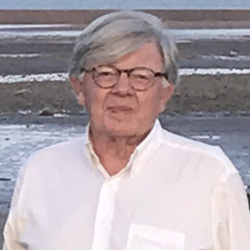Morrow: Before reporting became ‘Journalism’
Published 12:00 am Wednesday, September 30, 2020

- Lance Morrow
|
Getting your Trinity Audio player ready...
|
Writers used to subdue their egos and encourage readers to think. Nowadays it’s all about arousing emotion.
My father’s favorite word of dismissal was “phony.” As a young man, he worked for the Philadelphia Inquirer. For him and his fellow reporters, phony was the watchword—an instinct. That period—the late 1930s, going into the war—had the atmosphere of a movie by Frank Capra, who was big on newspaper reporters as everyman types. After the calamitous sucker-punch of the Great Depression, a guy didn’t want to be a sap.
That generation of reporters would rather have died, or moved permanently to Albany, N.Y., than call themselves “journalists.” The term itself was phony. When young Henry Luce, who went on to co-found the Time-Life empire, was just out of Yale, he showed up for his job at the Chicago Daily News, he carried a walking stick and a briefcase. The editor looked him up and down and said, “Ah, Mr. Luce. A journalist, I see.”
Trending
The lesson I absorbed as a boy was that the work of reporting called for a disinfected mind that busied itself, with little-guy sympathies and self-effacing clarity, on available facts, collected conscientiously. The ideal was fairness: Let the reader decide. It would not have occurred to my father or his fellow reporters, or to me in my apprentice days at the Buffalo News or the Washington Star, to drape the facts in adjectives and adverbs and attitude. The eye of the city editor (the great Sid Epstein at the Star, for example) was vigilant and scathing: Who gives a damn what you think?
If a sensitive person, or, God forbid, one of us on the newspaper staff, had declared that something or other made him feel “uncomfortable” or “unsafe” or constituted a “micro aggression,” the answer would have been an incredulous stare: “So what?” If it happened again: “You’re fired.”
The journalistic paragon of my youth was David Broder, who covered politics for the Star and later moved to the Washington Post. He was everything that a reporter in the old model ought to be: dispassionate, nonpartisan and encyclopedic in his knowledge of his subject. Broder had not a trace of the disabling egotism, ruthless ambition or partisan zealotry that afflict media stars today.
It would be silly to idealize the old journalism, which had its problems, including excessive deference to authority and massive sins of omission in the scope of its curiosity; anyway, it belonged to a different world. But it had this virtue: The work, subduing the ego of the reporter, implied respect for the independent mind of the reader.
Alas, the independent, nonpartisan mind went out of fashion years ago in politics, media, academia and even corporate life. Emphasis on the integrity of individual judgment has all but disappeared in the face of identity politics, the religion of diversity and the radical corruption of American universities—the effect everywhere intensified by this year’s obsessive and, one might say, compulsory racialism. America won’t be an honest country until those influences have been defeated or have burned themselves out. It may take years, a generation or two.
For now, in the annus insanus of 2020, we are afflicted by a pandemic of media phoniness. Plastering the facts with attitude—tilting the story to the party line, moralizing it, sentimentalizing it, propagandizing it—is the way of noisy, distracted cable news and, increasingly, of all media. Not a sparrow falls without the New York Times, in its news columns, telling the reader that the bird was shot by a “white supremacist.” News is laid before the citizen’s mind so packaged and tarted up with a narrative line that the simple facts are often impossible to discern.
This is not honest reporting but garish, partisan fabulation. Its object is not to inform, or to encourage reflection, but to stimulate feelings. Let not the listener or viewer or reader be detained by thought but instead move briskly on to emotions, which are the addictive and highly profitable drugs in which big media traffic. News media become crack houses of information and, all the while, ruthless participants in the struggle for political power and for what the parsons on “Morning Joe“ call “the soul of America.”
Trending
Journalism’s metaphysical decline proceeds as a parallel to the deterioration of American politics. In both fields, we behold the lingering death of public trust. The energies that flow into the vacuum left by the departure of trust are self-righteousness, violence of mind and an ineffable stupidity—the civic despair and hysteria that have become the style of poor, miserable 2020.
This article, by Lance Morrow, appeared in the Wall Street Journal. Lance Morrow is the Henry Grunwald Senior Fellow at the Ethics and Public Policy Center. His work focuses on the moral and ethical dimensions of public events, including developments in regard to freedom of speech, freedom of thought political correctness on American campuses, with a view to the future consequences of such suppressions. You can find more information on Mr. Morrow at https://www.lancemorrow.com/author/.





